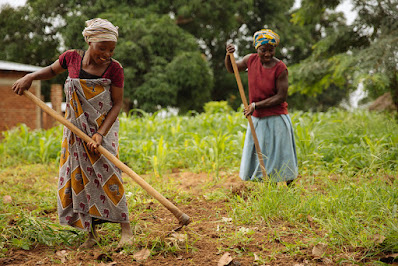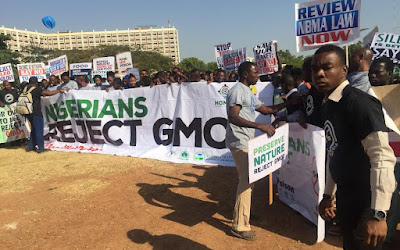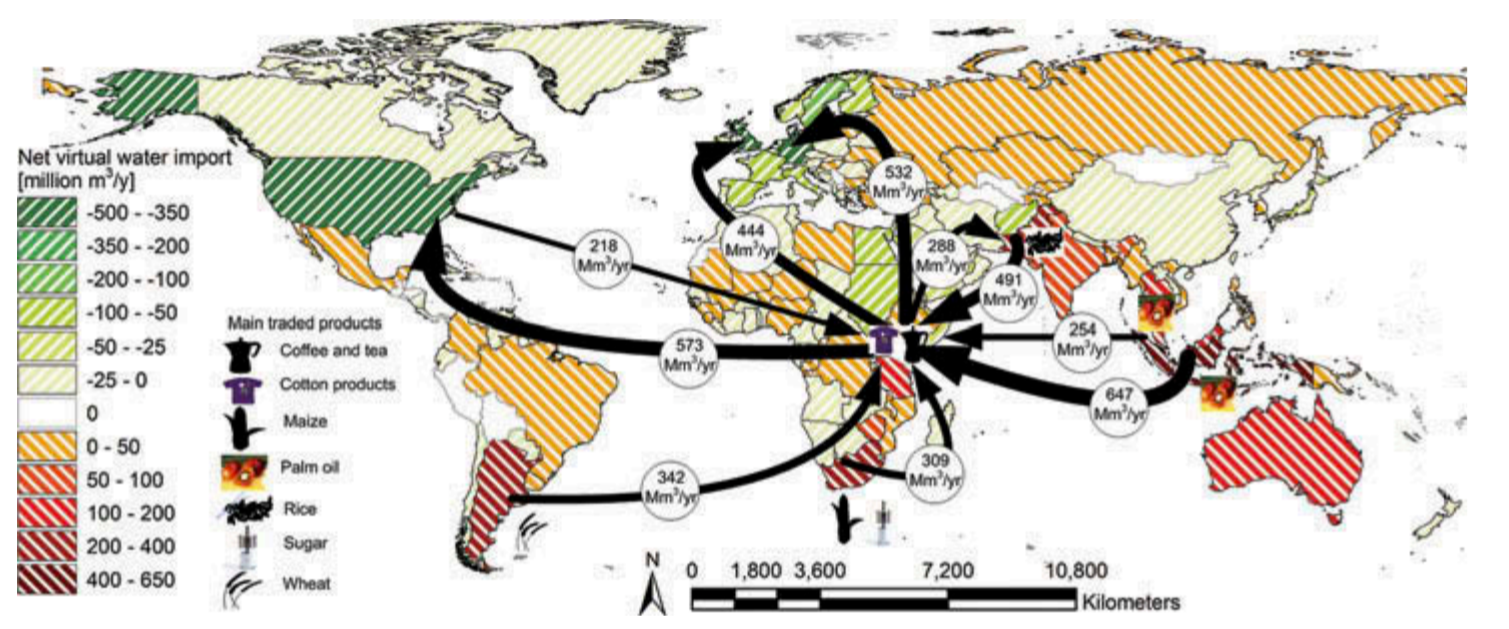Always Blame the Farmers!
Theoretically speaking, ideal policymakers could use a variety of technological, social, and economic strategies, such as those outlined in my earlier posts, to strike a balance between water shortage and food security. However, when it comes to realistic water resource conservation, small-scale irrigational farming is frequently blamed and farmers' interests are often neglected. In this post, I would like to discuss the tensions between traditional smallholder irrigation and other stakeholders in Tanzania to examine farmers' dilemmas in the face of regional water shortage.
Located in Tanzania's southwest, the Great Ruaha River (GRR) is a significant watershed of the Rufiji River. GRR has a drainage area of roughly 68,000 km2 and is critical to agriculture output and national hydropower generation (Baur et al., 2000), as well as delivering water to over 6 million people (Lankford et al., 2009). The majority of riparian residents work in agriculture, and there are three primary irrigation systems in use: self-sustaining traditional smallholder farming, enhanced traditional smallholder farming with government or donor assistance, and contemporary large-scale projects (e.g., the Kapunga and Mbarali rice farms; England, 2019).
The GRR has a highly seasonal and spatially unequal rainfall pattern, with upstream highlands receiving much more annual rainfall than downstream flatlands (Baur et al., 2000). Rainfall is concentrated during the wet season, which usually lasts from December to April. With the reduction of river flows in the mid-1970s, the basin witnessed significant hydrological changes. The appearance of no-flows events in 1993 has considerably heightened public awareness of hydrological changes in the basin and the conflict of interest between upstream farmers and downstream stakeholders, since GRR used to be perennial (Walsh, 2012).
Water allocation has been a hydro-political balancing act for the local administration ever since. On the one hand, promoting upstream agriculture can assist in maintaining farmers’ vote, while on the other hand, avoiding downstream hydropower generating failure can help avoid related economic penalties and obtain support from the powerful hydroelectricity industry.
Apart from various factors such as climate change, land-use changes, and mismanagement in the hydropower system being raised by academia (Kashaigili, 2008; Kangalawe et al., 2011; Walsh, 2012), the mainstream option held by local stakeholders is blaming upstream traditional smallholder irrigation as the greatest causalities for hydrological change in GRR. In a 2017 interview-based research, all of the GRR actors blamed the reducing dry season river flow on the increase in the area and water-use inefficiency of smallholder irrigation schemes, which generally mirrors the current sanctioned narrative.
When taking actor self-interest into account, understanding why conventional smallholder irrigation is blamed would be easier (England, 2019). Smallholders provide a handy scapegoat for MEM and Tanesco (Tanzania's national ministry and company responsible for hydropower generating) to divert attention away from their poor hydropower system operation and help them target their energy generation objectives. Blaming smallholders is also convenient for the Southern Agricultural Growth Corridor (a public-private partnership) in advocating for the modernisation of traditional irrigation schemes and meeting their ambitious irrigation expansion targets. These actors frequently argue, in concert with other powerful stakeholders in the basin, for a restriction on water extraction for upstream traditional smallholder irrigation.
Under such a social environment, the Rufiji Basin IWRMD Plan clearly asks for a pause in irrigation area expansion until the efficiency is improved. The Rufiji Basin Water Office has also ceased granting dry season water abstraction licences, leaving a lot of farmers without legal access to water. Politicians also often utilise the water permit system as a vote-getter. A handful of ward councillors would indirectly encourage farmers without permissions to "opportunistically irrigate" before election years in order to consolidate votes (England, 2019).
Miserably, water resource management in GRR is more concerned with political vote-buying and appeasement of strong stakeholders, rather than with determining who actually needs water and how to maximise water resource efficiency. Future researches should be conducted without the goal of appeasing partisan and self-interests, in order to gain a better understanding of the actual causes of hydrological change and the best solution for the basin's future.





评论
发表评论